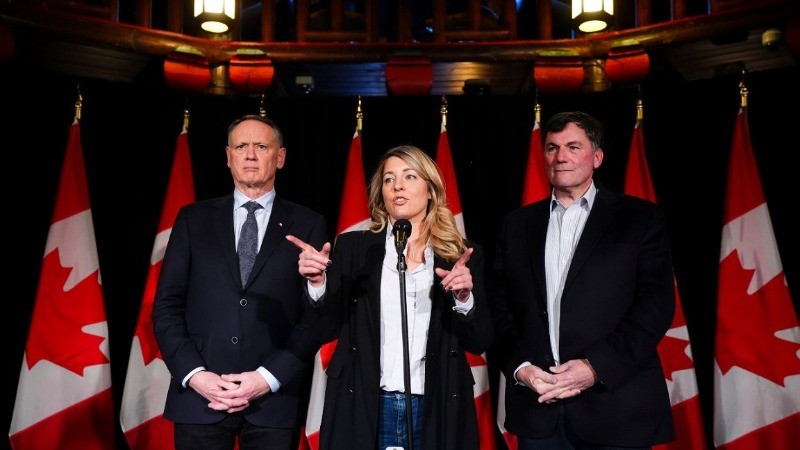
Top Canadian officials confirmed on January 20 that Canada will be prepared to retaliate if U.S. President Donald Trump follows through with his plan to impose a 25% tariff on Canada and Mexico, starting February 1. Trump has repeatedly warned of the possibility of implementing large-scale tariffs on Canada, Mexico, and other trading nations, according to the Associated Press.
Trump said late Monday during a meeting in the Oval Office - We are considering 25 percent tariffs on Canada and Mexico, I think it could start on February first.
The exact timeline for the potential tariffs is still unclear. Trump has signed an executive order calling for a report from the Secretary of Commerce, which is expected by April 1.
It was on Monda that an executive action was signed by Donald Trump, instructing the secretaries of Commerce, Treasury, and the U.S Trade Representative to look into the reasons behind America’s trade deficits with other countries. The goal is to explore ways to create an "External Revenue Service" for collecting tariffs, identify unfair trade practices, and review current trade agreements for possible improvements.
The action also calls for a closer look at how the US-Mexico-Canada Agreement (USMCA), signed by Trump during his first term, is impacting American workers and businesses. The agencies are tasked with evaluating whether the U.S. should continue participating in this free trade deal. Additionally, the executive order directs the agencies to assess whether a tougher U.S. trade policy could help reduce the flow of fentanyl and curb the number of undocumented migrants entering the country.
In his inaugural speech, Trump made it clear that tariffs would be used, declaring that other countries would bear the burden of these trade penalties. However, it's worth noting that these tariffs are typically paid by domestic importers and often passed on to consumers in the form of higher prices.
Canadian Foreign Minister Mélanie Joly emphasized that Canada would continue to work to prevent the tariffs but was also preparing for potential retaliation.
Canadian Finance Minister Dominic LeBlanc noted that Trump’s approach can be unpredictable. “None of this should come as a surprise,” he said. “Canada is fully prepared to respond to any of these situations.”
Previously, Canadian leaders expressed relief that the tariffs were not enacted on Trump’s first day in office.
Canada relies heavily on trade, with 75% of its exports, including cars and auto parts, going to the U.S. In fact, Canada is the top destination for exports from 36 U.S. states. Each day, about USD3.6 billion Canadian (USD2.7 billion) worth of goods and services cross the border between the two nations.
Even though Trump has suggested the U.S. doesn’t need Canada, it’s important to remember that about a quarter of the oil the U.S. consumes daily comes from Canada.
LeBlanc warned that imposing tariffs could harm the U.S. economy, saying, “It would be a mistake for the U.S. government to move forward with these tariffs. It would impact the cost of living in the U.S., jobs in the U.S., and the stability of supply chains.”
Trump’s threat to impose a 25% tariff on Canada and Mexico resurfaces after he took office, accusing both countries of failing to curb illegal immigration and drug trafficking into the U.S.